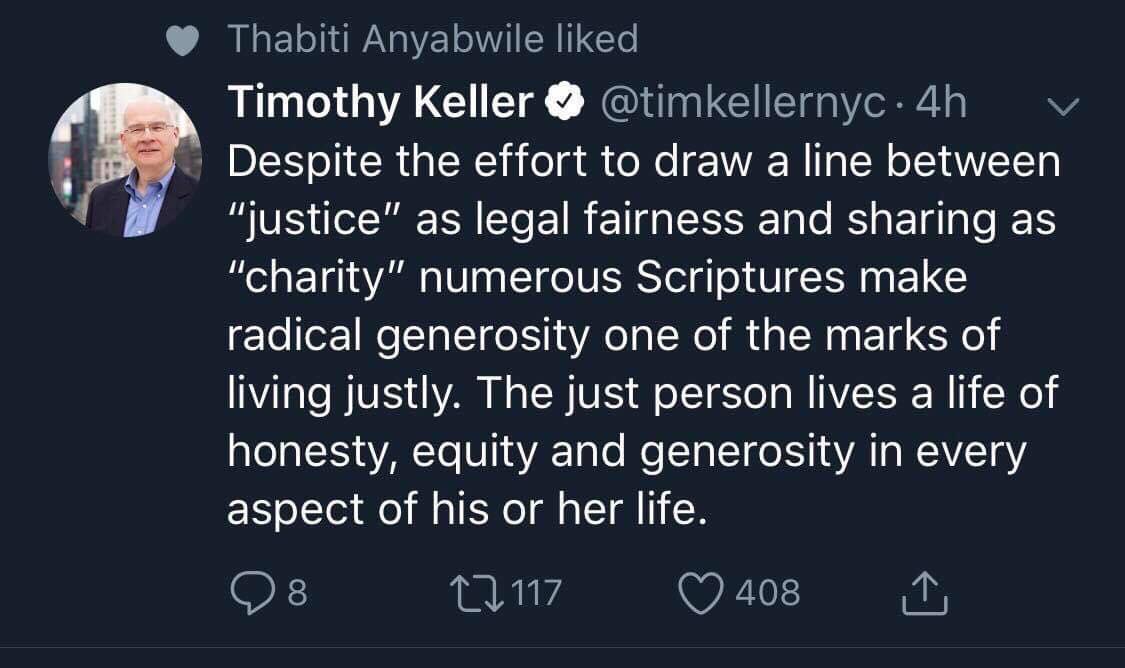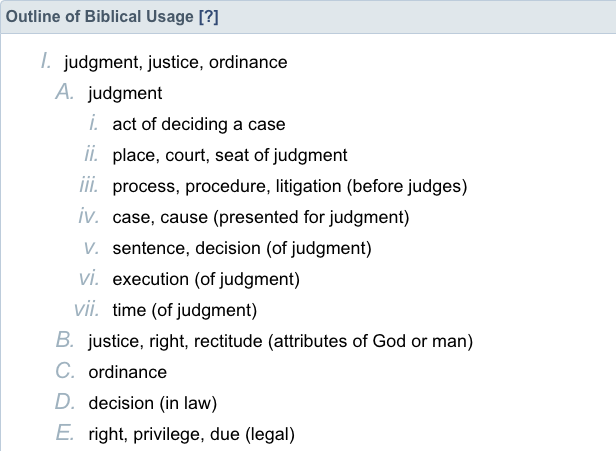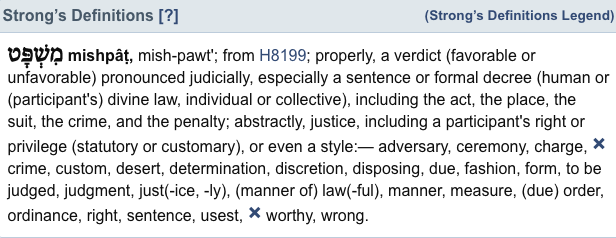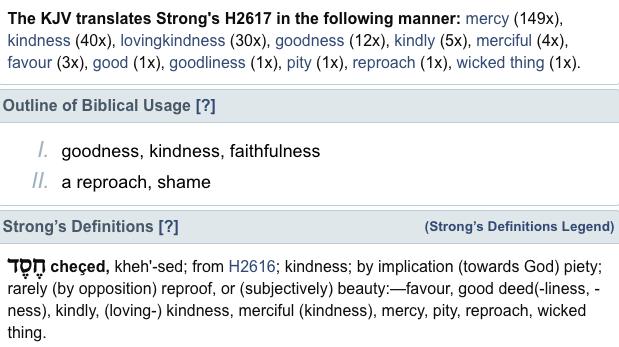By every conceivable understanding of Marxism, Tim Keller is a Marxist. While his own words testify against him in books like Generous Justice, his tweets continue to daily testify against Keller’s denials that he’s a Marxist. Tweets like this cannot be explained away from his defenders, like Carl Trueman, who absurdly claimed that he can’t be a Marxist because he’s a theist. There’s only one possible interpretation of tweets like that which came from Keller earlier today.
The “effort to draw a line between justice and charity” is not Biblically artificial and neither is it new. It’s a division that’s as old as the Bible itself. Virtually every commentary written on pertinent Scriptures demonstrate a divine distinction between the categories of justice and mercy. Only in a Marxist worldview, in which the impoverished are impoverished by necessity from systemic injustice, can the redistribution of wealth be considered “just” and not theft.
The Bible makes an important distinction.
Consider, for example…
He hath shewed thee, O man, what is good; and what doth the LORD require of thee, but to do justly, and to love mercy, and to walk humbly with thy God? (Micah 6:8)
The prophet is not giving this list redundantly. Justice and mercy are distinct categories. Again, the commentaries have always recognized this difference historically.
Justice is rendered in the Hebrew as מִשְׁפָּט (mishpat). Mercy is rendered in the Hebrew as חֶסֶד (checed). These terms have very different meanings. Justly (מִשְׁפָּט) can be defined by Strongs H4941and does refer – contrary to Keller’s assertion – to legal rightness. Consider the screenshot below from Blue Letter Bible.
And again…
Mercy (חֶסֶד), on the other hand, is a matter of personal charitability, the kind and type that is not deserved and cannot be demanded.
Notice the difference between mercy and justice.
Keller here conflates living justly with living mercifully. The implications here for Gospel-twisting are of paramount importance. If there is no discernible difference between justice and mercy, then the gift of eternal life for sinners must be a matter of justice toward the sinner. And yet, justice was dispensed upon Christ for the sinner, so that they could receive mercy. Without clear distinctions between justice and mercy, the sacrifice of Christ makes no logical sense.
Justice is what is deserved. Mercy is what is not deserved (if it is good) or injustice (if it is bad).
As I wrote in “Why Justice is Not the Mission of the Church (In the Most Simple Terms Possible),” these terms are not interchangeable.
Justice – “Getting what one is due, what they deserve, or that to which they are entitled.”
Mercy – “Compassion toward one in a lesser estate, particularly done without obligation, but with empathy.”
It’s only a difficult distinction if you’re a Marxist.
What Scriptures to which Keller eludes, which demonstrate that justice and mercy are the same, are yet forthcoming. Until then, it suffices to assume that Keller is conflating “living justly” with “living in a way that is pleasing to God.” Certainly being charitable is pleasing to God. That doesn’t mean that charity is the same as justice. Again, for charity to be justice, the poor must be poor by an act of injustice. That is a Marxist presupposition. For Capitalists and those with a Biblical worldview, we understand that it is God who makes rich and makes poor (1 Samuel 2:7), that the poor will always be with us (Matthew 26:11), that laziness is often a cause of poverty (Proverbs 10:4-14), as well as matters of divine providence like sickness, intellectual ineptitude, disability, and genuine misfortune.
Keller says that the “just person” lives their life with “equity.” This, of course, is yet another Marxist tenet. As opposed to equality (which is Biblical and good), equity deals with the equality of economic outcome.
Furthermore, as Keller speaks of wealth redistribution, he refers to it as “sharing.” Forced redistribution of wealth under the threat of government force is not “sharing.” It is theft, and it’s a violation of God’s moral law. This is why Marxism is inherently immoral, as is Tim Keller.
Thabiti Anyabwile (aka Ron Burns), who endorsed Socialist politician, Bernie Sanders, in the last presidential primary ‘liked’ the tweet. Obviously.
[Contributed by JD Hall]















